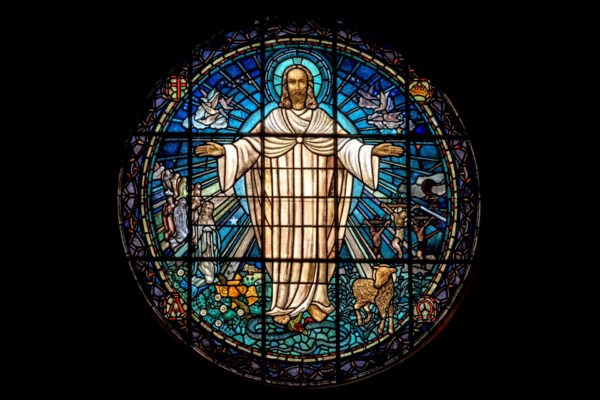Earlier this year, after several months of prayer, discussion, and planning, our church launched the ECC Pastoral Residency: an eighteen-month training program for men discerning a call to gospel ministry. The goal of this residency is to equip pastors for the local church by training them in the context of the local church, providing an opportunity for focused teaching, mentoring, growth in godliness, and gospel-driven service.
Why A Pastoral Residency?
While seminaries can provide an extensive and much-needed theological education for aspiring ministers, they do not “make” pastors; churches do. Raising up faithful leaders to shepherd God’s people is an essential, yet often-neglected, part of the church’s commission. We see this clearly in Paul’s instruction to Timothy, who was the pastor of the church at Ephesus: “What you have heard from me in the presence of many witnesses entrust to faithful men, who will be able to teach others also” (2 Tim. 2:2).
The message that Timothy had heard from Paul was none other than the gospel of Jesus Christ—the “good deposit” which he was to guard (2 Tim. 1:8-14). To preserve and ensure the spread of this good news, Paul charged Timothy to pass it on to responsible and reliable men who would then be able to teach others. From the testimony of Scripture and the witness of church history, it has become our conviction that it is the responsibility of the local church to identify men who are called, evaluate their call, assess their character, and train them for the work of the Christian ministry.
About the Pastoral Residency
The Residency is an 18-month program to mentor and equip men for service in the local church. This training is not to be understood as simply learning a new skill. In the biblical sense of the word, training is the imparting of sound doctrine for the purpose of godliness through personal relationship, prayer, teaching, modelling, and practical instruction. Such pastoral training in the local church is meant to complement, rather than replace or reproduce, the theological training one would receive in seminary.
Additionally, Residents are required to be covenant members of ECC, or in the process of membership. The reason for this is that the biblical qualifications and character of an elder (pastor) are best assessed and cultivated within the life of a local church. In this way, residents will not only become more acquainted with a congregation they may be called to shepherd one day, but they will also come to be known by the congregation in such a way that their strengths can be identified, their weaknesses exposed, and their call to ministry evaluated.
However, not everyone who completes the residency will become a pastor of ECC (nor will everyone discover they have been called to pastoral ministry). For those who have successfully completed the program, who have had their call to the Christian ministry confirmed both inwardly and by the leadership and congregation of ECC, and who express a desire to serve this local church, an additional period of testing would follow before being put forward as a pastoral candidate at a members meeting.
At the conclusion of the ECC Pastoral Residency, by God’s grace, residents will have grown in:
- Their love for Jesus and his church.
- Their understanding of God’s word, especially concerning the church and pastoral ministry.
- Their fluency in the gospel and reliance upon the Holy Spirit.
- Their character as a man of God and competency as a biblical shepherd.
The Format
Over the course of eighteen months, residents will study systematic, biblical, and pastoral theology by completing several assigned readings, participating in book discussions, and writing a variety of papers. Many of these papers will be posted on our blog. In addition to meeting regularly for prayer and teaching, residents will also receive meaningful experience through participation in various aspects of pastoral ministry. This may include teaching, preaching, visitation, evangelism, attending meetings, and shadowing other pastors.
A consistent devotional life will be expected of each resident. The Bible will be read through in its entirety and residents will also be memorizing Scripture throughout the duration of the residency.
Please pray for our church, our leadership, this pastoral residency and specially our residents as we launch this ministry. Pray that these men walk in a manner worthy of the Lord, fully pleasing to him, bearing fruit in every good work, and increase in their knowledge of God (Col 1:9-14).
Required Reading
Pastoral Residents will be required to read, reflect on the following material.
Preliminary Reading
- Nine Marks of a Healthy Church, by Mark Dever
An Overview of Biblical Eldership
- Church Elders: How to Shepherd God’s People Like Jesus, by Jeramie Rinne
- Portraits of a Pastor: The 9 Essential Roles of a Church Leader, edited by Jason Allen
- Holiness: Its Nature, Hindrances, Difficulties, and Roots (Abridged), by J. C. Ryle
Systematic Theology
- Sound Doctrine: How a Church Grows in the Love and Holiness of God, by Bobby Jamieson
- Taking God at His Word: Why the Bible Is Knowable, Necessary, and Enough, and What That Means for You and Me, by Kevin DeYoung
- Concise Theology: A Guide to Historic Christian Beliefs, by J. I. Packer
- The 1689 London Baptist Confession of Faith
The Gospel
- The Gospel: How the Church Portrays the Beauty of Christ, by Ray Ortlund
- Redemption: Accomplished & Applied, by John Murray
- The Cross of Christ, by John Stott
- God is the Gospel: Meditations on God’s Love as the Gift of Himself, by John Piper
Biblical Theology
- Biblical Theology in the Life of the Church: A Guide for Ministry, by Michael Lawrence
- According to Plan: The Unfolding Revelation of God in the Bible, by Graeme Goldsworthy
- The Unfolding Mystery: Discovering Christ in the Old Testament, by Edmund Clowney
- Short Studies in Biblical Theology (pick one), series edited by Dane C. Ortlund, Miles V. Van Pelt
Ecclesiology
- Biblical Foundations for Baptist Churches: A Contemporary Ecclesiology, by John Hammett
- Don’t Fire Your Church Members: The Case for Congregationalism, by Jonathan Leeman
- The Prodigal Church: A Gentle Manifesto Against the Status Quo, by Jared Wilson
- Word-Centered Church: How Scripture Brings Life and Growth to God’s People, by Jonathan Leeman
Pastoral Ministry
- Preaching and Preachers, by Martin Lloyd-Jones
- Preaching: Communicating Faith in a Skeptical Age, by Tim Keller
- The Pastor as Public Theologian: Reclaiming a Lost Vision, by Owen Strachan & Kevin Vanhoozer
- Instruments in the Redeemer’s Hands: People in Need of Change, Helping People in Need of Change, by Paul David Tripp
- Brothers, We Are Not Professionals: A Plea to Pastors for Radical Ministry, by John Piper
- The Cross and Christian Ministry: Leadership Lessons from 1 Corinthians, by D. A. Carson
- The Pastor’s Justification: Applying the Work of Christ in Your Life and Ministry, by Jared Wilson




